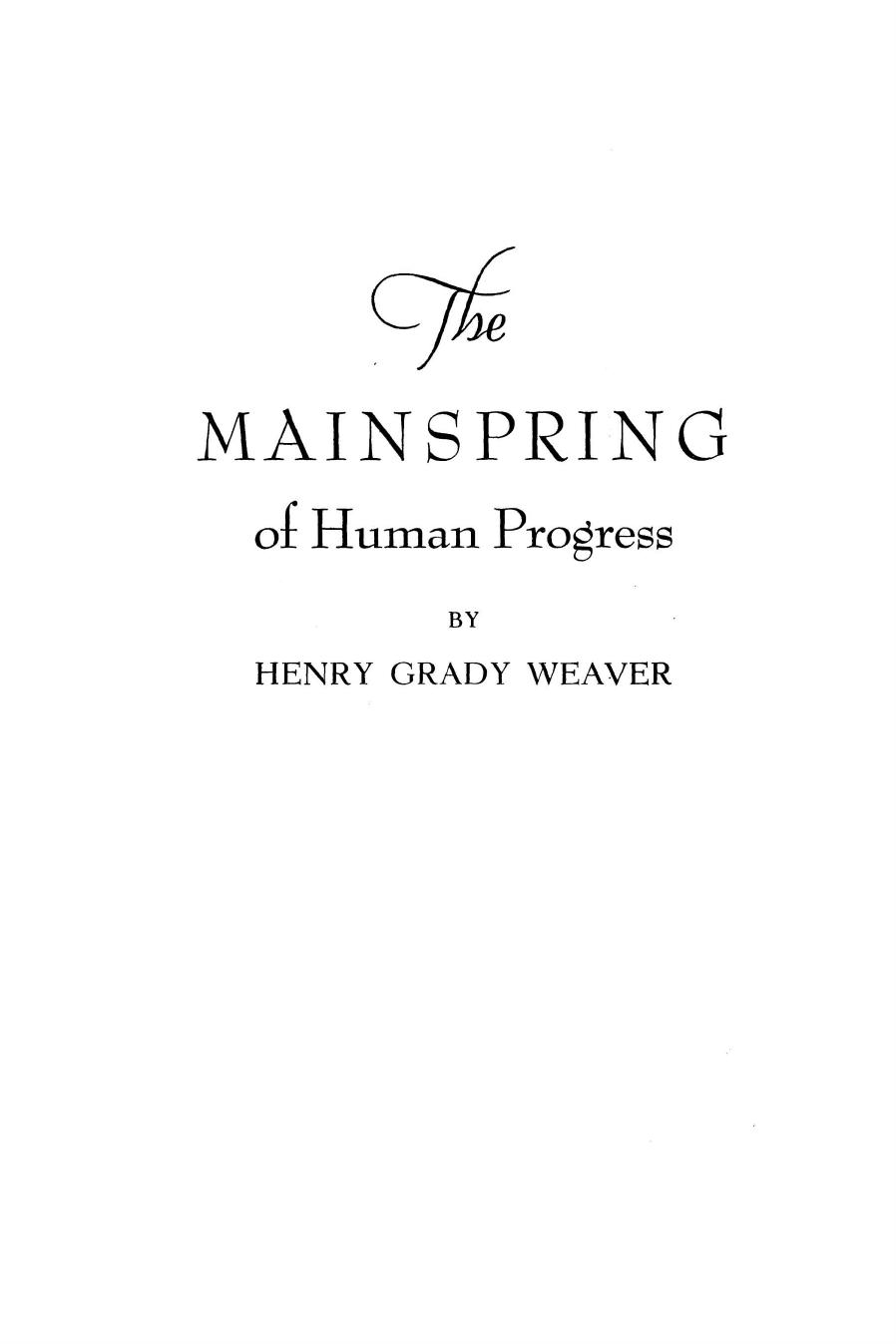The Mainspring of Human Progress by Henry Grady Weaver

Author:Henry Grady Weaver [Grady Weaver, Henry]
Language: eng
Format: epub, pdf
ISBN: 9781933550763
Publisher: Ludwig von Mises Institute
Published: 1953-11-06T16:00:00+00:00
The Spanish
The Old World monarchs, eager to extend their domains into the New World, granted large tracts of land to favored subjects.
Spain had the edge by almost a hundred years and began setting up colonies on the American mainland as early as 1509. In the beginning, the efforts were rather loosely organized. The Conquistadors were going ahead on their own initiative – handling any problems that arose and settling them right on the spot. Things were moving too fast for the Madrid bureaucrats to keep up with the details.
But as time went on, the home office supervision was tightened up. Bureaucratic controls were extended to the farthest outposts and were strictly administered “for the common good.”
Under the sponsorship of the government – and at the government’s expense – carefully selected peasants of good character, sound morals, and industrious habits were shipped over and established on collectivist farms. The government provided detailed instructions for clearing the land, caring for fences and gates, plowing, planting, cultivating, harvesting, and dividing the crops.
By order of the King, each settler’s family was given a six-month-old pig, a barrel of grain for each adult, and a hoe for every child over six years of age.
Each settlement was built as in Spain – a compact mass of cottages, protected by a detachment of soldiers and a well-constructed fort:* A commandant, appointed by the King, kept order and dispensed justice – usually with much sympathy and wisdom. Typically, he addressed the settlers as “my children,” and they were obedient, well-behaved, and gay. They made friends with the Indians and learned their ball games, raced horses, fought cocks, danced, and sang. They were cared for as well as, or better than, their friends and relatives back home. Shipping was well organized; communication was fairly frequent. The Spanish colonists enjoyed a reasonable degree of safety and leisure in the American wilderness, and they usually had enough to eat.
Download
The Mainspring of Human Progress by Henry Grady Weaver.pdf
This site does not store any files on its server. We only index and link to content provided by other sites. Please contact the content providers to delete copyright contents if any and email us, we'll remove relevant links or contents immediately.
The Rules Do Not Apply by Ariel Levy(4969)
On the Front Line with the Women Who Fight Back by Stacey Dooley(4872)
The Lonely City by Olivia Laing(4801)
Bluets by Maggie Nelson(4556)
The Confidence Code by Katty Kay(4260)
Three Women by Lisa Taddeo(3433)
Not a Diet Book by James Smith(3425)
Inferior by Angela Saini(3313)
Confessions of a Video Vixen by Karrine Steffans(3308)
A Woman Makes a Plan by Maye Musk(3254)
Pledged by Alexandra Robbins(3177)
Wild Words from Wild Women by Stephens Autumn(3153)
Nice Girls Don't Get the Corner Office by Lois P. Frankel(3044)
Brave by Rose McGowan(2823)
Women & Power by Mary Beard(2767)
Why I Am Not a Feminist by Jessa Crispin(2760)
The Girl in the Spider's Web: A Lisbeth Salander novel, continuing Stieg Larsson's Millennium Series by Lagercrantz David(2721)
The Clitoral Truth: The Secret World at Your Fingertips by Rebecca Chalker(2720)
I Who Have Never Known Men by Jacqueline Harpman(2669)
